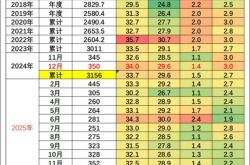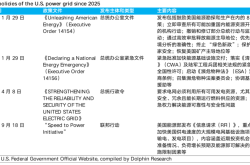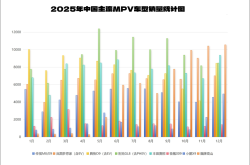CarHome rumored to be acquired by Haier, marking the end of traffic migration for vertical auto portals?
![]() 11/22 2024
11/22 2024
![]() 504
504
Is CarHome changing hands again, this time to Haier?
On November 20, netizen "Hong Party" revealed that Haier Group's plan to acquire CarHome has been officially confirmed. If all goes well, Haier is expected to announce the news soon.
Rumors also suggest that according to insiders at CarHome, the relevant Haier team will officially join CarHome by the end of this year. Not only will new retail be integrated into the new team, but there will also be significant changes among senior management, and Haier has already started looking for a new CEO for CarHome.
In response, Haier Group told the media that it would not comment on market rumors.
Industry speculation is rife: Haier's acquisition of CarHome aims to tap into the used car market. Previously, Haier had already established a used car platform called "Kataichi", which aligns with CarHome's used car business, "Ershouchezhijia".
Why is CarHome suddenly rumored to be up for sale? If the rumors are true, what does Haier aim to achieve with this acquisition?
CarHome's Mid-life Crisis
In October 2016, CarHome officially announced that its founders, Li Xiang and former CEO Qin Zhi, had stepped down from the board, with Kang Yan and Wang Junlang from Ping An Trust taking over as new directors. Kang Yan and Wang Junlang are now the current president and CFO of CarHome, respectively. This marked the change of ownership to "Ping An".
However, changing the surname to "Ping An" did not bring breakthroughs to CarHome. After 2016, new platforms like official accounts, Douyin, and Xiaohongshu emerged unstoppably. Under the trend of decentralization in communication channels, CarHome (and other vertical media portals) began to decline, which is a well-worn story.
On the evening of November 6, CarHome released its third-quarter financial report for 2024, showing that revenue for the third quarter was 1.77 billion yuan, a year-on-year decrease of 7.9%; even more disconcerting was profitability, with adjusted net profit for the quarter at 440 million yuan, a year-on-year decrease of 23.9%.
In early 2021, when Li Xiang participated in a variety show, he proudly talked about the two companies he founded, one with a market value of 200 billion yuan and the other with a market value of 70 billion yuan. The latter is CarHome, but as of November 21, CarHome's total market value was 26.669 billion yuan, indicating a nearly 60% drop in market value over four years. Of course, the overall weakness in the valuation of Chinese stocks listed in the US is also an undeniable fact during this period.
More troubling than declining performance is the fact that, as a platform with content as its core productivity, CarHome's content is being criticized by more and more netizens.
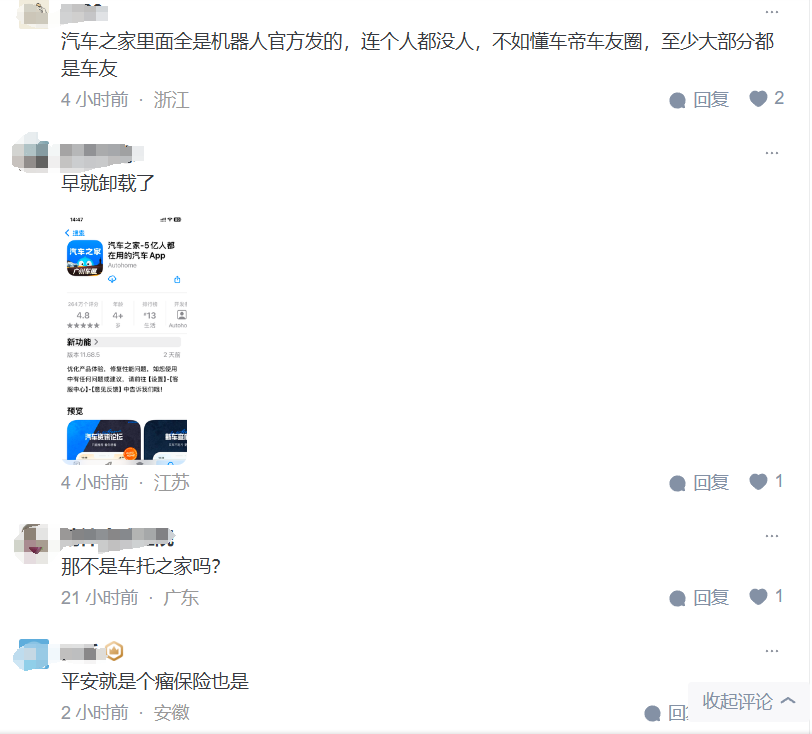
Source: Zhihu
Previously, CarHome won a group of active users and loyal fans with its popular community forums and travelogues. However, Ping An's overeager commercialization after taking over led to a sharp decline in user experience, and CarHome was soon dubbed "Chetuo Home" by its once-loyal users.
Netizens say that there are more and more advertisements and soft articles on the CarHome platform, which degrades the user experience and makes the platform feel "different". In CarHome forums, negative information about some cooperating automakers is difficult to post or will be deleted after posting, resulting in information on the platform being insufficiently authentic and objective. The proliferation of water armies and car salesmen has lowered content quality and authenticity, which in turn has reduced CarHome's reputation and credibility.
This has led to a continuous loss of users for CarHome. Coupled with products and content that cannot keep up with the development of the times, CarHome has also encountered a mid-life crisis.
CarHome Squeezed by Internet Giants
Internal troubles are abundant, and external threats are also troubling. Facing fierce competition from similar platforms like Dongchedi and Yiche, CarHome has not demonstrated the courage expected of a "big brother".
Compared to CarHome, Dongchedi and Yiche each have their own content focus. Yiche, backed by Tencent, is more pragmatic and efficient with Tencent's ecosystem as a backstop; while Dongchedi, backed by ByteDance, frequently goes viral with its content due to ByteDance's huge traffic base.
On November 14, Yiche officially announced its upgrade to "Tengyi Technology", and Tencent authorized it to operate the Tencent Advertising Large Transportation Industry. Yiche's tool content, images, and videos are fully integrated into the Tencent system, making Yiche content native to Tencent.
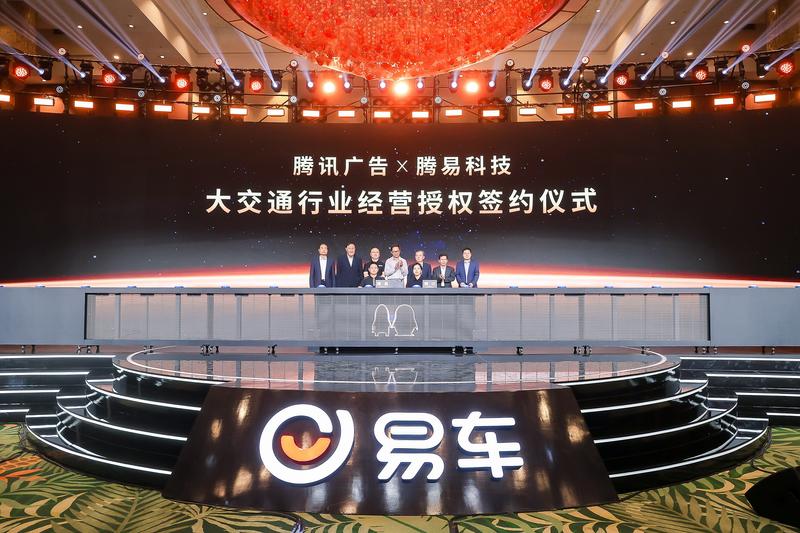
Source: Yiche official website
With the help of Tencent's advantages, Yiche content appears in WeChat search, WeChat grid, video number, Tencent News, QQ Browser, Tencent KanDian, and other car-related scenarios. It has also launched multiple products, such as intelligent navigation systems and VR car viewing, to enhance the user experience.
Dongchedi has increased its investment in content innovation and integration with Douyin. Relying on ByteDance and leveraging Douyin's traffic base, Dongchedi integrates its used car business. You've definitely seen Dongchedi's placements while browsing Douyin, such as "Open the Dongchedi APP to directly query XXX".
At the same time, Dongchedi is also good at creating buzz and has launched a series of high-quality car evaluations, such as winter testing, summer testing, collision testing, teardowns, etc. The Mercedes-Benz vs. BMW high-speed collision test, teardown of ten cars priced between 100,000 and 150,000 yuan, and high-speed collision between Wuling MINIEV and Laotou Le, all released on Bilibili, have all garnered over a million views and gone viral frequently. These programs have not only increased Dongchedi's industry visibility but also directed some viewers to the Dongchedi APP.
With the support of ByteDance and Tencent, China's two largest "traffic black holes", CarHome is hard-pressed to stand alone against its competitors. Compared to its rivals' active innovation and experimentation, CarHome's approach seems somewhat "traditional". In 2023, CarHome suddenly announced its plan to establish offline space stations, with the first store officially opening in Foshan in January 2024.
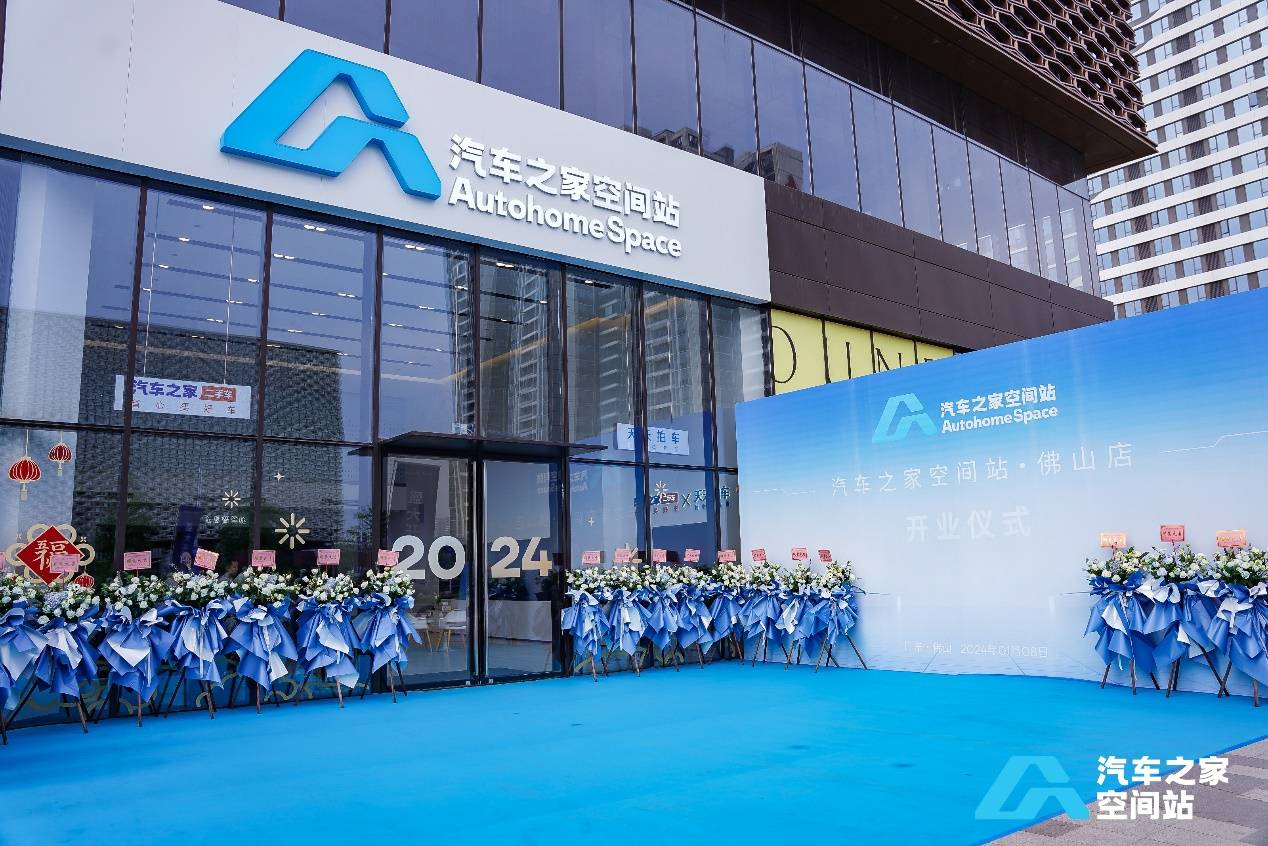
Source: CarHome official website
This so-called offline space station is, quite frankly, similar to the big-box store model of the mobile phone market, where multiple brands are gathered, allowing users to compare many models at once without having to visit multiple 4S stores for test drives.
Regarding the initial intention of setting up space stations, CarHome stated that due to the peaking of online traffic, it hopes to expand offline and become a car-buying assistant for consumers.
The intention is good, but the outcome is uncertain. At present, CarHome's approach to offline space stations is somewhat idealistic.
Firstly, let's not even talk about the big-box store model; in the first half of this year, nearly 2,000 4S stores nationwide closed down. Nowadays, automakers are more willing to communicate directly with car owners. Secondly, whether brands are willing to be compared side by side with competitors is a dynamic question, and automakers' rhythms may vary over time, which may leave CarHome feeling somewhat passive.
As of now, CarHome's financial reports have not disclosed specific data on offline space stations. Considering the statement by CarHome executives that "space stations do not pursue profit in the short term and prioritize ensuring franchisee investment returns," this is a long-term project, and its future remains to be seen.
The glory days of vertical auto portals are over
CarHome's current situation is a microcosm of all vertical auto media. A decline in reputation and performance is a periodic challenge faced by every company, and there is still room for recovery. The real reason, however, is that this industry is struggling to survive.
From the financial report, CarHome's media service revenue in the third quarter of 2024 was only 326 million yuan, a 31.7% decrease from the same period last year. Media service revenue refers to online advertising services and other forms of media promotion services, mainly from advertisements placed by automakers and dealers on its platform.
In other words, CarHome is becoming less attractive to its clients. Automakers and dealers are starting to allocate their budgets to "new forces" like Douyin and Xiaohongshu.
Of course, CarHome cannot be solely blamed for this situation.
Since the new energy vehicle industry entered an era of intense competition, automakers have shifted their budget focus more towards product iteration, computing power upgrades, and after-sales service, naturally reducing their marketing budgets.
In March of this year, Huawei AITO and Zhijie announced the cessation of cooperation with CarHome, Dongchedi, and Yiche. In addition to the confidence brought by their own traffic, the lower return on investment of vertical media is also one of the reasons. It is reported that Huawei AITO sold around 100,000 units in 2023, and the above three vertical media only contributed less than 5,000 units, with a conversion rate of less than 5%.
At the same time, platforms like Xiaohongshu, Douyin, and Weibo have risen rapidly, attracting many young users and diverting part of automakers' budgets.
From the "2024 Xiaohongshu Automotive Industry Marketing Proposal," it can be seen that the annual growth rate of content and search volume related to automobiles on Xiaohongshu has reached 1318% and 115.4%, respectively. The report also mentions that the proportion of Xiaohongshu users who develop a desire to purchase after browsing products is as high as 81%.
According to QuestMobile data, as early as the first quarter of 2023, the combined number of auto soft advertisements on the two short video platforms, Douyin and Xiaohongshu, exceeded 7,000, and the proportion of short video platforms in auto advertising is on the rise.
For this wave of young car owners who grew up in the internet era, CarHome is far less attractive than Douyin's Maoge and Dogge or Xiaohongshu's Jimei.
Weibo has unique social media attributes, with automaker executives, car reviewers, KOLs, and other key figures all having a presence, which can spark heated discussions and continuously influence users' minds. Weibo's Q3 financial report shows that new car marketing cooperation in the automotive industry covers nearly 50% of the market, with new product marketing revenue contributing nearly 70% of industry revenue, driving an increase in Weibo's automotive industry revenue in the third quarter year-on-year. Weibo's third-quarter advertising revenue was approximately 2.824 billion yuan, a significant contribution from automakers' "rocket launches".
In 2024, many automaker executives have taken to the field to learn from Lei Jun by creating entrepreneur IPs, using Weibo, and engaging in live streaming. Some automakers even consider the operation of senior executives' Weibo accounts as a KPI.
From the perspective of users, young people today are indeed more willing to obtain vehicle information through videos and reviews from self-media on platforms like Douyin, Xiaohongshu, and Weibo. On vertical portals like CarHome, browsing via PC web pages is a good experience, but how many young people actually use their computers after work? Probably very few.
Final Thoughts
Judging from the history of the development of the Chinese internet, once traffic migrates, it's hard to bring it back.
Traffic lows are constantly changing, from blogs and portals in the beginning to Weibo, official accounts, short videos, and Xiaohongshu. Traffic flows like a river and cannot be diverted. History often repeats itself, and there are patterns to follow. In the era of short videos, no one in the automotive vertical portal industry, whether it's CarHome, Dongchedi, or Yiche, can escape unscathed.
Cover image source: CarHome
Source: Leitech


